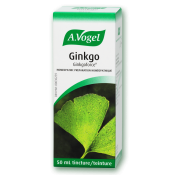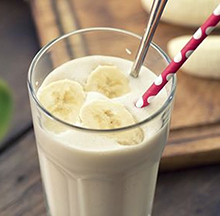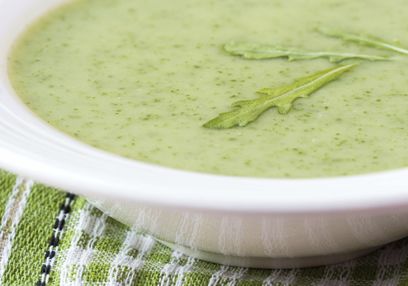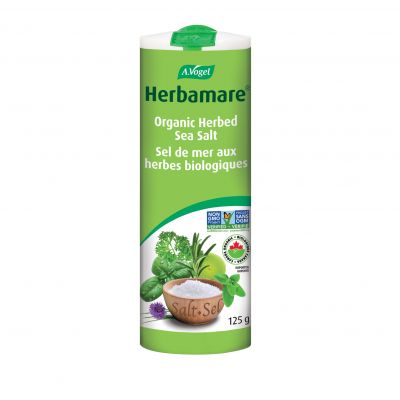Not surprisingly, our brain decides what information to keep (i.e. what it finds relevant) and what not to bother with, but unfortunately, sometimes our brain can’t be bother to keep any information at all!
As we age, it is natural that we don’t retain as much new information as we did in our younger days, but in certain situations memory loss can be a serious issue.
Memory loss can be an early warning sign that something is not exactly right with our body and/or mind. Factors leading up to memory loss are varied. It can be a sign of debilitating conditions like Alzheimer and other dementias, as well as a symptom of depression, head injury, thyroid, kidney or even liver problems.
Memory loss be precipitated by nutritional deficiencies, and/or excessive alcohol consumption. Finally, certain medications can have this unpleasant side-effect as well. While genetic predisposition isn’t something we can change there are many ways to optimize your body—and mind—in order to slow down or prevent premature memory loss.
Here are 5 ways to help keep your brain sharp as you age
1.Enough sleep: Sleep deprivation and/or disruption can cause great cognitive (i.e. perception, sensation, notion, memory, etc.) problems, so getting enough sleep is essential. This may be common sense to most, but the reality is that many of us lead very busy, stressful lives and are not getting enough sleep. The Vanier Institute reported that Canadians 35-44 years of age get the least sleep.
Why is sleep so important? What constitutes enough sleep?
Many of us embrace the mantra “life’s too short, I can sleep when I’m dead!” Ironically, lack of sleep can definitely speed up this process! It so happens that when you sleep your brain is keeping very busy, and during this time memory gets “consolidated”; in other words, it gets processed and saved for future retrieval. This occur during cycles of rapid eye movement (REM) and non-REM sleep.
The whole process is rather complex and extremely fascinating. Any disruptions can seriously affect the retrieval of saved information. Sleep requirements do vary with age groups; teenagers, for example, require lots of sleep to meet the metabolic and cognitive demands. Sleep experts recommend, on average, 8 hours of sleep as anything less than 6 can seriously affect your health (e.g. weight gain, emotional problems, body temperature dysregulation, susceptibility to infections, etc.). For the curious mind, several apps now measure the quality of your sleep by assessing the number of REM cycles over the course of the night.
2.Physical activity: Like sleep, physical activity is another no-brainer, but unlike sleep, we can push it aside and procrastinate. “Moderate physical activity” is an all-encompassing, vague term thrown at people every day. What is it? Why should I bother? I eat well, and I walk to work, isn’t that enough?
Unfortunately, no, that may not be enough for the average person. Moderate physical activity is any activity that increases your heart rate. It doesn’t have to be a sprint running, but it can be brisk walking for 20-30 minutes every day.
As a matter of fact, researchers have concluded that 30 minutes of “moderate” physical activities drastically decreases a myriad of diseases, mainly cardiovascular diseases—and yes, this would also include your brain, which has the highest demands for oxygen, carried in the blood that your heart pumps. As your heart circulates more blood, oxygen reaches vital organs, and toxins get removed. If the brain does not get enough oxygen it cannot carry its basic functions, which surprise-surprise include memory consolidation! I encourage everyone to check out “24 Hour Fitness – 23 and 1/2 hours” on YouTube for more information.
3.Balanced nutrition: Nowadays everyone seems to know something about what constitutes a “healthy diet”. Unfortunately, nobody seems to agree on the specifics, and this includes the experts. Rather than following marketing fads, adhering to a clean diet that meets your metabolic needs may be more effective; that is, avoid processed foods, sugary foods, and try to eat fresh, home-cooked meals. If you’re concerned about food allergies, or a sensitivity, then speak with a qualified health care professional.
Now, how does what I eat affect memory?
After all, food is processed by the stomach and gut, not at the brain. I will use the example of vitamin B12. This vitamin is only absorbed if the stomach produces enough acid. Long-term use of medications that decrease stomach acidity can impair B12 absorption giving rise to “brain fog” and other cognitive and neurological dysfunction. It so happens that after food gets digested proteins (in the forms of amino acids), fats, sugars, minerals, vitamins, etc. have to be absorbed. The body doesn’t just absorb these building blocks for the sake of it, but because every single cell in your body requires them.
Your brain is a mesh of billions of cells that convey thousands of little chemical and electrical messages per second (very similar to a telecommunication lines) with high metabolic needs (in this case it’s like a construction site) met by your nutritional intake. Brain cells are also insulated in a layer of fatty cells, and damage to them can seriously affect how the brain transmit signals (e.g. multiple sclerosis)—these signals can be anything from sensation, an action, recognition, and memory. Many people are terrified of eating fats, but healthy fats (e.g. in fish, avocados, olive oil) are important as well in order to modulate certain inflammatory processes. The bottom line is that regardless of the diet you choose for yourself, make sure you are consuming enough protein, enough “good” fats, and enough greens to keep your body—and brain—happy.
4.Social interaction: This may seem rather far-fetched to some, but it is well documented that people who live in isolation are at a higher risk of depression, cognitive decline and premature death. Surrounding yourself by happy, loving people increases your own happiness, reduces stress and keeps you healthy for longer. This may be great news for extroverts, but if you’re not one to partake in social gatherings, don’t worry, research suggests that 10 minutes a day of talking to others may be enough to improve mood and memory.
The suggested mechanism is that when we socialize we need to keep alert and maintain our attention, things that require the use of our memory. As a species, human are social beings. We require emotional support from others in order to get through tough times, but we also share our gains and celebrate our victories with loved ones. So next time there’s a party, or your kid’s soccer game, challenge yourself, make a game of it and socialize for your brain’s sake!
5.Brain games: These include anything from crossword puzzles and sudoku to more specialized programs like “Lumosity”. If we can loosely compare our brain to a muscle, the more you train it, the “stronger” it gets. Unlike a muscle, the brain processes, relays, and stores information, so if you wish to give it a workout, you need to do it in a similar fashion. These games bring awareness to your response time, memory, recognition, etc.
The more you play “Brain games” (or cognitive function tests), the better you get eventually. The brain is not static. It continues to produce new networks and to reorganize old ones. The benefit is that the stronger you make these networks, the more robust your cognitive faculties get—and this includes memory! So, just like with social interaction, challenge yourself, pick out a game of choice and give it a try on your commute to work, or during your lunch break!
Bonus: What else can I do to prevent memory loss?
Herbs traditionally used for memory and brain health (alone and/or in combination): Bacopa minerri, Rosmarinus officinalis and Ginkgo biloba. While these products are not a replacement for a healthy lifestyle, in some cases it can be a valuable add-on, but please always check with qualified health-care professional.
The best way to prevent memory loss may not be the easiest or fastest. While there are no quick-fixes or magic pills, some natural products have been used traditionally to help maintain cognitive stamina. If you have a personal and/or family history of cerebrovascular insufficiency, brain aneurysm, dementia or any condition that leads to cognitive decline always check with a medical provider prior to taking any over-the-counter products. Feel free to inquire about heavy metal testing if heavy mental/aluminum contamination is a concern.
References
http://www.ncbi.nlm.nih.gov/pmc/articles/PMC3768102/
http://www.vanierinstitute.ca/include/get.php?nodeid=2867
Guide alimentaire canadien : http://www.hc-sc.gc.ca/fn-an/food-guide-aliment/index-fra.php
https://www.mentalhelp.net/blogs/mental-health-memory-and-social-interaction/
http://member.aarp.org/health/brain-health/brain_games/
Maguire, E. A., Gadian, D. G., Johnsrude, I. S., Good, C. D., Ashburner, J., Frackowiak, R. S. J. et Frith, C. D. (2000). Navigation-related structural change in the hippocampi of taxi drivers.Proceedings of the National Academy of Sciences of the United States of America, 97(8), 4398-4403.







